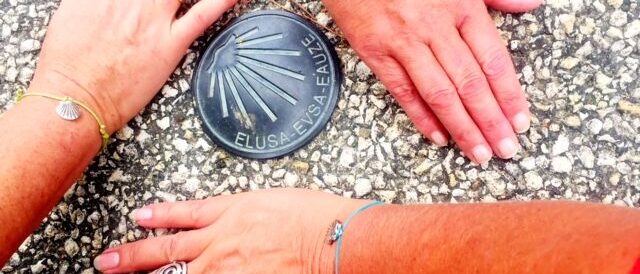As introverts, we experience unique signs of burnout when we’re in desperate need of rest, particularly when we’ve been overstimulated by social interactions or haven’t had enough time on our own.
If you feel yourself getting tense and then relaxing again as you read the following paragraphs, you are probably an introvert:
The Day Sarah Hit the Wall
As an introvert, I’ve always enjoyed the quiet moments spent with a good book or exploring nature. However, there was one particular week that pushed me to my limits—a week filled with back-to-back social events, work meetings, and family gatherings. Each day began with excitement, but as the days dragged on, I could feel my energy reserves dwindling.
It all culminated on a Saturday evening when I attended a friend’s birthday party. The venue was packed, the music was loud, and the conversations were non-stop. At first, I tried to engage and enjoy myself, laughing at jokes and catching up with friends. But as the hours passed, I felt an overwhelming sense of fatigue wash over me. My mind started to feel foggy, and I found myself zoning out during conversations. The vibrant chatter around me transformed into a dull roar.
By 10 PM, I was on the brink of what I now recognize as introvert burnout. My heart raced as I realized I couldn’t take it anymore; I needed to escape. With a polite excuse about needing to get home early, I slipped out of the party and took a deep breath of fresh air. The quiet of the night enveloped me like a warm blanket.
Once home, I sank into my favourite chair with a cup of herbal tea and let out a sigh of relief. In that moment of solitude, I could feel my body begin to relax. I turned off my phone and allowed myself to simply be—no obligations, no noise, just the gentle sound of my own breathing.
The next day was dedicated entirely to replenishing my energy stores. I spent hours in nature, taking long walks and soaking in the tranquillity that only solitude can provide. It was during this time that I reflected on the importance of recognizing my limits and honouring my need for alone time.
This experience taught me that it’s okay to step back when social demands become overwhelming. Understanding my own signs of burnout has since allowed me to create healthier boundaries around social engagements, ensuring that I can enjoy them without sacrificing my well-being. Now, whenever I feel that familiar sense of fatigue creeping in, I remember that it’s not just okay to recharge—it’s essential for my happiness and mental clarity as an introvert.
Red Flags: When It’s Time to Retreat
Recognising these signs early allows you to prioritise downtime and restore balance before full-blown burnout sets in:
1. Overwhelming Sense of Exhaustion (Despite getting Enough Sleep) Introverts may feel completely drained if they can’t replenish their energy stores. This often points to a need for more than just physical rest because introverts, by nature, are sensitive to mental, emotional, and sensory overstimulation. If we haven’t had enough time to ourselves for quiet reflection, emotional processing, or relief from sensory input like loud noise or bright lights, our energy reserves can plummet.
2. Irritability or Mood Swings If, after overexposure to stimulating environments you become uncharacteristically short-tempered, easily frustrated, or moody then you haven’t had enough time alone to decompress. Even minor complications can start to feel unbearably annoying.
3. Increased Anxiety in Social Situations Feeling more overwhelmed than usual during social interactions is a sign that you are energy-depleted and in need of a break. When introverts don’t get adequate time to themselves, their tolerance for social engagement drops significantly, causing interactions that were once manageable to become seriously stressful.
4. Difficulty Focusing or Concentrating If you have trouble concentrating, or difficulty thinking clearly, you may need mental rest, because constant overstimulation without proper downtime can make it harder for introverts to focus or process information.
5. Avoidance of Social Interaction (Even with Close Friends/Family) If you start to zone out during conversations and withdraw from even your closest friends or family, it may be a sign you’re suffering from energy exhaustion and the mere thought of socialising—even with people you love—can feel overwhelming.
6. Losing Interest in Hobbies or Creative Outlets Losing interest in activities that normally bring you joy, like reading, painting, or walking, is a sign of creative exhaustion which makes you feel too drained to engage in the activities that usually inspire you.
7. Physical Discomfort or Sensory Overload Heightened sensitivity to light, sound, smells and other sensory inputs, along with headaches, can signal that you need sensory rest. .
8. Burnout: Feeling “Numb” or Detached can be a sign of emotional burnout. Introverts who suppress their feelings during social interactions often need emotional rest, and when they don’t get it, they can become disconnected from their emotions.
9. Overthinking and Racing Thoughts, especially about recent decisions, indicate a lack of mental rest. Introverts tend to replay interactions in their heads, and when they don’t get time to clear their mind, it can become exhausting.
10. Frequent Daydreaming or a Desperate Need to Escape If you regularly zone out, daydream, or fantasise about being somewhere else—like on a Camino de Santiago Walking Retreat in the sun-blessed south of France— it can be because you use daydreaming as an emotional defence mechanism when you feel overstimulated and can’t immediately get the solitude you need.
Going on a retreat like a Camino de Santiago walking retreat can be a powerful way for introverts to avoid burnout because it offers the deep, multifaceted rest they need to restore their mental, emotional, and sensory balance. Unlike standard vacations, which often involve constant activity and socialising, a retreat provides an intentional, structured space for solitude, reflection, and rest—essentials for introverts to recharge. The opportunity to walk in silence along this scenic path allows introverts to reflect without the distractions of daily life, and provides us with much-needed rest, helping to soothe our frayed nerves far from our usual overstimulating environments.
Remember, there’s no shame in needing to recharge – rest an essential part of an introvert’s self-care routine.
If you would like to be one of the first to hear about early-bird and last-minute special offers, CLICK HERE to subscribe to my Savoir Vivre Vignette Newsletter.

































